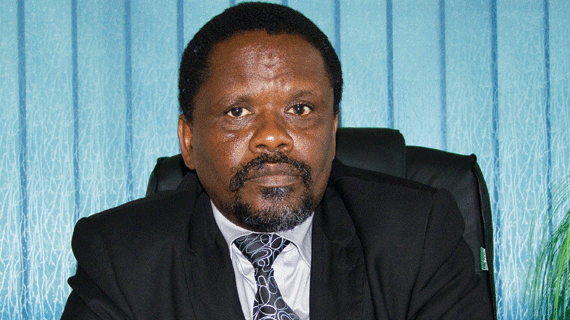
PHILOSOPHIES may be self preserving or society preserving, depending on the proponent’s purpose in pursuing a given philosophy.
The late Vice-President Joshua “Big Josh” Nkomo — also affectionately known as Father Zimbabwe or Umdala Wethu — was passionate about this noble philosophy: Umntanenhlabathi, mwana whevhu (sons and daughters of the soil).
Zambia’s former president Kenneth Kaunda was seized with humanitarianism, a belief that emphasises common human needs and seeks rational ways of solving human problems. His rallying point was: “One Zambia-One Nation.”
This was despite the fact that Zambia has approximately 72 languages. The succeeding presidents have followed in Kaunda’s footsteps of fostering a united nation.
Indeed Big Josh was bigger than life. This was proved when his statue was erected in Bulawayo. For months the site where his statue stands was a hive of activity. To date, you cannot pass by the statue without witnessing some activity around the scene — cameramen at work, bystanders, admirers and watchful eyes of passers-by.
The magnetic effect of the statue is reminiscent of the good old days when Big Josh (from Geneva) addressed a record crowd at Mahomva in Bulawayo. He told his mesmerised audience that he had brought Zimbabwe. His lieutenant the Late Josiah Chinamano, described cattle (nkomo) — in reference to Big Josh — as very significant.
You eat the meat, the skin makes shoes, horns make glue, dung is fertilizer, nothing is thrown away from a cow or ox carcass. This was an expression of how important Nkomo was in Zimbabwean political terrain.
Talk to the elderly who were already grown-ups in the 1950s and 1960s, they will tell you about Chibwe Chitedza, Mafukufuku, Father Zimbabwe, Umdala Wethu, Umasilangokuthubela. These were the days where every Zimbabwean was umntanenhlabathi, mwana wevhu. There can be no better glue to cement together tribal, racial and dialectical differences than this uniting philosophy.
- Chamisa under fire over US$120K donation
- Mavhunga puts DeMbare into Chibuku quarterfinals
- Pension funds bet on Cabora Bassa oilfields
- Councils defy govt fire tender directive
Keep Reading
Had this nationhood preserving philosophy been religiously adhered to, there would have been no split of 1963 which saw the formation of Zanu — no split of the Patriotic Front into Zapu and Zanu PF, no Gukurahundi genocide, no 2008 brutalities, if only somebody cared enough.
In an exclusive interview with Dali Tambo in the run-up to the July 31 election last year, President Robert Mugabe accused 5 Brigade of not following instructions and acting unilaterally in the Gukurahundi genocide.
He went on further to admit that what happened was outrageous and reflected a personal element within the said soldiers. Supposing we give Mugabe the benefit of the doubt and choose to buy his story, more questions remain unanswered, like what were the correct instructions given to these soldiers and what retributive measures were meted out for such barbaric atrocities? Were these soldiers under any command or were they loose cannons?
In his book The Story of My Life, Big Josh traces his upbringing values, that of trusting people wholly, as his undoing when he was betrayed by people he expected to be trustworthy.
He recalls Muhammed Faiek his Egyptian friend in 1960 asking him the question: Is Zapu still one party? What tribe do you belong to? Are you a Ndebele? Big Josh was puzzled by these questions. Faiek went on to explain that he was informed that the Shonas — the “majority tribe” — were keen to take over the leadership of Zapu.
“Watch out there is a problem in your party,” he said. This was proven in Addis Ababa when Leopold Takawira and friends openly challenged Big Josh’s leadership. Joseph Msika reportedly snatched a circular from Washington Malinga that called upon the majority tribe to take over leadership from “Zimundebere”. The grand plan had indeed started. This discourse is clear proof that unlike what one would want, gullible readers to believe, the 1963 split was not about leadership style or quality of decisions made by Big Josh, but squarely a tribal issue.
For the ouster to appear as a leadership style matter, Enos Nkala was pushed to the fore to fight his own. When thousands, composed of leadership and supporters of Zapu converged at Cold Comfort Farm for the Zapu Congress in 1963, a group of Dar es Salaam-based members met in Nkala’s Highfield residence to form Zanu.
James Chikerema discovered a plot to abduct or kill Big Josh supposedly to take place at Sir Stuart Gore Brown’s residence and alerted Big Josh. At Zapu’s congress of August 11 1963, James Chikerema proposed and it was carried that Big Josh be the life president of the party and he declined the offer —quite the opposite of what we see in political circles today.
One shudders to observe into what depths of turmoil this tribal agenda has pushed the country into. In the closing chapter of his book titled Freedom Lies Ahead, Nkomo alludes to the hard fact that “a nation can win freedom without its people becoming free”.
However, he closes his book in his usual conciliatory tone: “It is not too late to change all that to master the collective energy of our people, a new Zimbabwe we ‘promised’ and struggle for.”
If only Big Josh’s philosophy of mntanenhlabathi/mwana wevhu had got buyers, we wouldn’t be in this mess.
Moses Tsimukeni Mahlangu is the general-secretary for Zimbabwe Urban Councils Workers’ Union. He is a labour consultant and arbitrator. Feedback: Email: [email protected]










